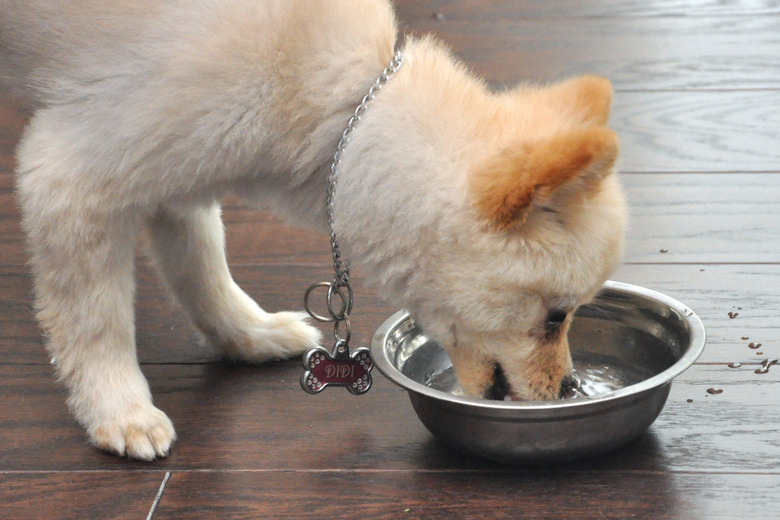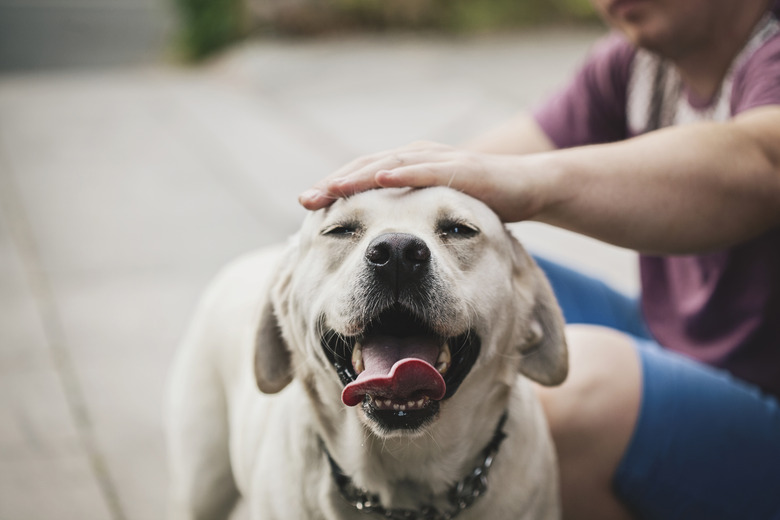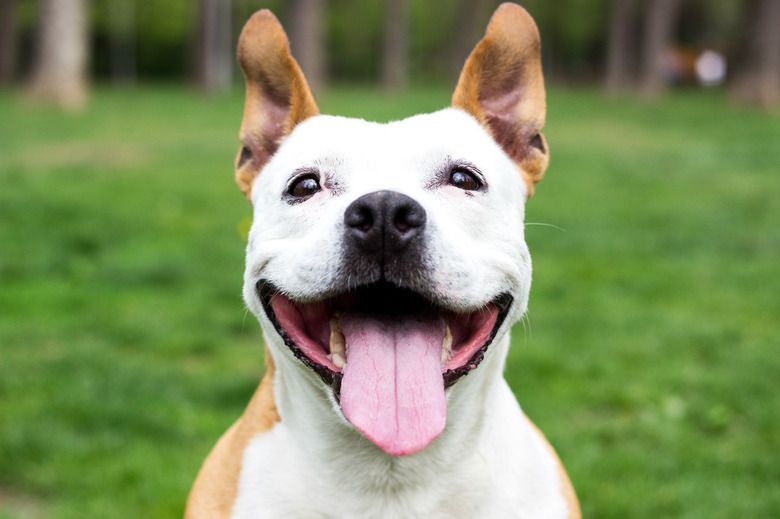Homemade Mouthwash For Dogs
By the time your canine companion turns 3 years old, he will likely have periodontal dental disease like 80 percent of the canine population. Just like humans, dogs deal with tartar and plaque and need to have their teeth brushed daily. When your furry friend hates getting his teeth brushed — or just needs some extra dental care — DIY doggy mouthwash made from ingredients like peppermint and salt is a good way to keep his pearly whites gleaming and his breath smelling fresh between veterinary cleanings.
A combination of routine veterinary dental cleanings and home dental care will help slow down serious dental and health issues. Always speak to a veterinarian before giving your dog something new, as the vet knows your pet best.
Coconut oil doggy mouthwash
Coconut oil doggy mouthwash
You can easily make a basic coconut oil and baking soda mouthwash. Melt a teaspoon of coconut oil in the microwave and stir in 1 teaspoon of baking soda. To make a coconut oil dog mouthwash, simply melt down the coconut oil before adding the water. Apply some of the substance to a washcloth and gently rub your dog's teeth and gums.
Peppermint doggy mouthwash
Peppermint doggy mouthwash
Beyond making your pup's breath smell minty fresh, peppermint naturally helps a dog's upset stomach, aids digestion, and repels insects.
To make peppermint doggy mouthwash, grind fresh mint leaves in a blender and mix with 1 tablespoon of vegetable oil or water. Never give your dog peppermint-flavored items or peppermint oil. Peppermint candies, like candy canes and peppermint patties, contain artificial sweeteners and ingredients that are toxic to dogs. Likewise, natural essential oils aren't safe for dogs to ingest because they are highly concentrated.
Salt doggie mouthwash
Salt doggie mouthwash
Salt is the simplest way to temporarily clean your dog's mouth and discourage bacteria from lingering. Combine 1 cup of warm water with a half teaspoon of salt. Stir the warm water to fully dissolve the salt. Then, dip a washcloth in the salty dog mouthwash before swabbing the solution gently onto your dog's teeth and gums.
Echinacea root dog mouthwash
Echinacea root dog mouthwash
Echinacea, a plant-based supplement, is an anti-inflammatory. Pour 1 cup of water into a saucepan and add either 1 teaspoon of fresh echinacea root or 1/2 teaspoon of dried echinacea root. Boil the echinacea root and water in a saucepan for 10 minutes and then cover it and let the mixture steep and cool for one hour. Strain the cooled liquid before pouring it into a squirt bottle or onto a washcloth. Squirt or rub the echinacea solution onto your dog's gums.
Homemade dog water additive for bad breath
Homemade dog water additive for bad breath
If your precious pup isn't a fan of having her teeth brushed, add a natural additive to her water bowl to eradicate bad breath. Adding apple cider vinegar to your dog's water bowl does more than freshen her breath. It's been shown to have antibacterial properties and aids the canine immune system.
Homemade dog water additives and mouthwashes aren't enough to clean a dog's teeth, but they will go a long way toward fighting plaque, bacteria, and tartar in between professional veterinary cleanings.
Avoid human mouthwash
Avoid human mouthwash
Mouthwashes created for humans are dangerous for dogs because they contain toxic substances that dogs will swallow since they are unable to spit or gargle. Many dental products include fluoride or xylitol, which are substances that are poisonous to dogs. Xylitol is toxic even in small doses, as it causes a release of insulin that leads to a dangerous drop in blood sugar.
Symptoms of xylitol poisoning include vomiting, diarrhea, weakness, tremors, seizures, loss of coordination and appetite, and lethargy. If you think your dog has ingested a toxin, contact your veterinarian or a pet poison hotline immediately. Both xylitol and fluoride are quickly absorbed into canine's systems, so quick action needs to be taken. Poisoning can lead to coma or death.


